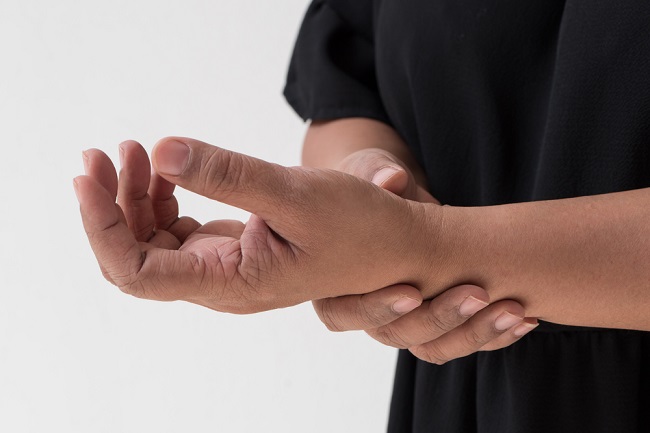Many people don't know the signs and how to deal with it shopaholic. In fact, this shopping addiction behavior is common. If left, shopaholic can cause various problems in the lives of sufferers, both economically and socially.
Shopping addiction or shopaholic including one type of impulse control disorder in buying something. This condition was recognized as a mental disorder in the early 20th century, and until now sufferers are increasing often with the development of spending on line.

People classified as shopaholic make shopping the main way to get satisfaction and happiness. Even so, the pleasure obtained is only temporary.
Signs Shopaholic
Shopaholic often co-exists with other mental disorders, such as anxiety disorder, depression, obsessive-compulsive disorder (OCD), or binge eating disorder. Usually shopaholic begins to appear in late adolescence and early adulthood (under 30 years of age).
Difficulty or even the inability to control the desire to buy things in excess is the main characteristic of a person shopaholic. While other signs or characteristics are:
1. Have self-esteem The low one
A shopaholic usually have self-esteem low, so he often sees himself lacking in something. Therefore, sufferers shopaholic usually shop with the aim of feeling complete and increasing their self-esteem.
2. Feel intense excitement after shopping
As with all kinds of addictions, a shopaholic often use shopping as a way to drown out unpleasant emotions and fill emotional voids.
Usually, a bad mood caused by fighting, stress, or frustration triggers the urge to shop.
When you see an item you like and buy it, a shopaholic can feel happy and satisfied, then forget the problems. This feeling of happiness makes it so addictive that it keeps repeating itself, especially if there is a trigger.
3. Feel sorry for overspending, but keep doing it
Although feeling very happy after shopping, it wasn't long before a shopaholic will usually feel disappointed and regret his actions. On the other hand, when he can't shop, he tends to get angry, frustrated, annoyed, can't enjoy life, even fall into depression.
So, despite realizing that his excessive and even detrimental shopping behavior is a problem that must be stopped, a shopaholic will continue to do so at a later date.
4. Shop secretly
Shopping progress on line which is getting faster can support and make it easier shopaholic to hide the purchase. This is usually done because he feels guilty for his behavior.
A shopaholic also tend to prefer to shop alone rather than embarrassing themselves by shopping with other people.
5. Poor financial management
As with other addictions, financial problems will also arise due to uncontrolled spending. A shopaholic feel that he can't stop spending and will still spend more money on shopping, even to the point of being stuck in debt.
6. Having trouble with other people because of their shopping behavior
Usually the people around shopaholic They will feel awkward in their behavior, for example buying things that are not important, forcing them to buy things that are beyond their ability, or often borrowing money for shopping.
Although not intending to deceive or harm those around him, shopaholic could have been ostracized for his behavior. Even those closest to him will feel tired because a reprimand or even a fight can't stop his bad habit.
In addition to those mentioned above, other signs possessed by a shopaholic is a tendency to spend most of his time just shopping, and planning or thinking about buying goods on an ongoing basis.
How to overcome Shopaholic
Stop shopping alone is not able to overcome the shopping addiction experienced by a person shopaholic. Treatment for shopping addiction is usually carried out according to the severity and source of the problem.
Here are some steps you can take to relieve your shopping addiction:
- Realize and acknowledge that this behavior can harm you and must be stopped immediately.
- Talk about your problem and what the triggers are with the closest people you can trust.
- Enlist the help of the family to take control of the spending of funds.
- Find alternative ways to divert your free time from shopping, such as watching movies or reading.
- Relax when there is a trigger that makes you feel frustrated because you really want to buy or can't buy something.
- Avoid using credit cards and keep only small amounts of cash so you can't buy impulsively.
- Shop only with friends or family members who are good at frugality and spending control.
You may not realize that the behavior of your family or even your own includes shopaholic. Therefore, understand the signs. If not addressed immediately, shopaholic can lead to big financial problems.
Especially during the pandemic when activities are very limited at home, many people run away by shopping to overcome boredom or emptiness. If you or someone close to you has signs of shopaholic, do not hesitate to consult a psychologist or psychiatrist.









